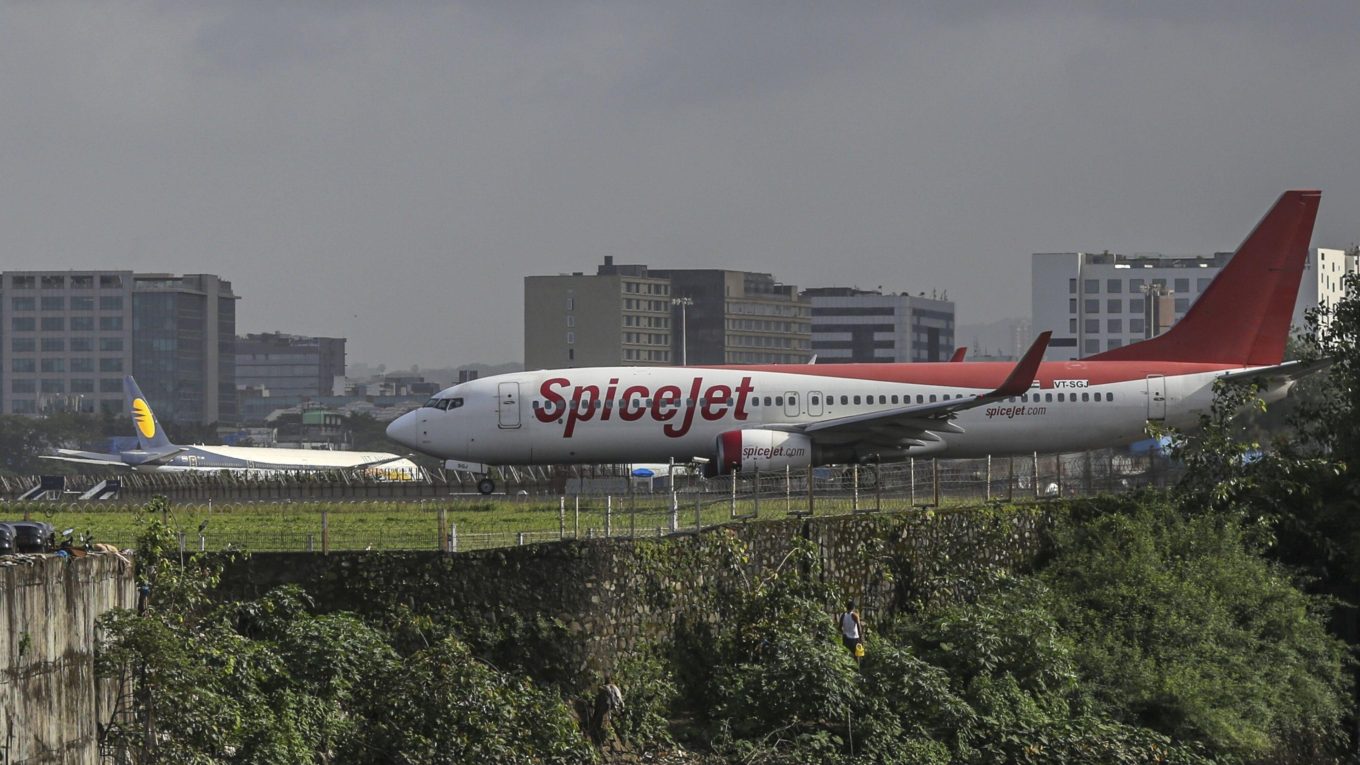SpiceJet most delayed Indian airline as travel season takes a toll
Written by Ragini Saxena
Passengers of cash-strapped SpiceJet suffer most of the flight disruptions in India, the world’s fastest-growing aviation market.
With the arrival of the busy summer travel season, only 61% of SpiceJet flights departed on time from the country’s four largest airports – Mumbai, Delhi, Bengaluru and Hyderabad – in May, according to the Directorate General of Civil Aviation. This is down from the already lagging figure of about 70% in April, agency data showed.
SpiceJet, which operates about 250 flights a day, is not alone. Air India Ltd., the country’s second-largest airline, slipped to fifth from second place in punctuality, with nearly twice as many flight delays in May as compared to the previous month. The Akasa Air, which launched less than a year ago, was the most on time, although its performance also slipped.
The frequent delays underscore the challenges of the post-pandemic boom in India’s highly competitive aviation market. Travel picks up during the school holidays in May and June, and carriers are struggling to keep up. Demand on some routes has been higher than usual after Go Airlines India Ltd. Tickets failed to sell in May, putting an even greater burden on the country’s airline networks.
High demand
Domestic passenger traffic increased by 15% to 13.2 million in May compared to the previous month. Meanwhile, airlines are dealing with a shortage of workers and planes after being sidelined during the pandemic. A global problem with Pratt & Whitney engines is adding to the tension by grounding dozens of aircraft that typically serve the Indian market.
“There is a lot of pressure on airlines to expand their services,” said Harsh Vardhan, chairman of New Delhi-based Starair Consulting. “Suddenly traffic is back with a vengeance. But airlines are still in the process of streamlining operations.”
The weather is also not helping, and social media is awash with complaints.
About 350 Air India passengers en route to New Delhi from London spent hours stranded in Jaipur at the end of June. The airline pilot expired after logging the maximum hours allowed while waiting for the Indian capital to clear weather. The SpiceJet flight from Pune to Dubai left 10 hours late. A schoolteacher in Bengaluru missed her uncle’s funeral when an AirAsia India flight was delayed.
For SpiceJet, the deterioration in punctuality comes along with financial challenges. It has not made a profit for four years, lost $40 billion during that period, and delayed issuing its latest fiscal year results. More than two dozen of the carrier’s budget aircraft were grounded at the end of May, when its market share fell to 5.4% from 7.3% at the start of the year.
“SpiceJet strives to continuously improve performance in all aspects, including our on-time performance,” said a spokesperson for SpiceJet.
Employment increase
It’s not universally bad across India, which experiences fewer flight delays than other major aviation markets. About 15% of departures from January to June 20 were delayed, compared with 30% in the UK and 20% in the US, according to data obtained from FlightAware.
There are signs of improvement as airlines add staff and capacity. Market leader IndiGo, which placed a record order for 500 Airbus SE aircraft in June, plans to hire 5,000 workers in fiscal 2024. Air India will hire more than 4,200 cabin crew and 900 pilots as it prepares to expand its fleet, according to its order. 470 Airbus and Boeing aircraft. SpiceJet aims to deliver the additional 10 Boeing 737s it has on lease by October.
sunstroke
It will take time to bear fruit. Meanwhile, the summer season exacerbates supply problems.
A sudden surge in demand often prompts carriers to operate spare aircraft, leaving less in reserve in case of complications. Airplanes are subject to wear at high temperatures. The result could be last-minute flight delays that could have been avoided, Vardhan said.
“All these factors are cumulatively exacerbating the problem, and last-minute flight delays are becoming acute,” Vardan said.
He said things should improve next year.
